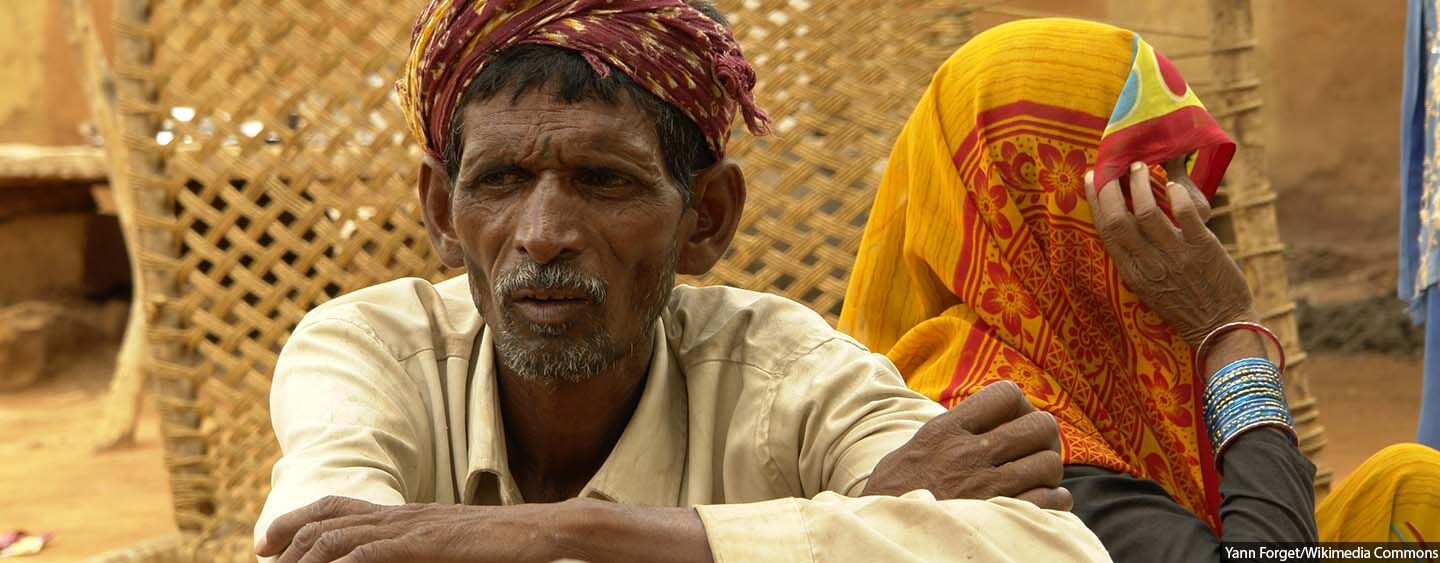For Adivasi Muslims in Jharkhand, tribal surname holds key to availing land rights

Adivasi Muslims in Jharkhand live a life of struggle as the tiny community fights to retain their tribal status which is key to their enjoyment of land rights.
Sami Ahmad | TwoCircles.net
PATNA (BIHAR) — For miniscule Adivasi Muslims living in Jharkhand, the struggle to maintain their tribal status is a dominant one.
A.R. Oraon, 55, (Oraon is a common tribe in Jharkhand) is a Muslim Adivasi living in a small village in Ranchi. He is the single such Muslim among 150 odd Muslim families there. He said that to be or to become an Adivasi Muslim is not so easy. “In Jharkhand, particularly in Ranchi, it is not a big deal to become a Christian. But it is daunting for an Adivasi to be a Muslim here," A.R told TwoCircles.net.
When A.R. wanted to be a Muslim, he knew the consequences like local opposition, family unacceptance, denial of the right to land and losing the tribal status. To minimize this, he first converted to Christianity and then to Islam. His wife, also a converted Muslim Adivasi from Christianity, still holds her earlier name. “Please use my name only if there would be no Fitna-Fasad (controversy) in the media like love jihad and dharmantran (conversion) etc," he said.
A.R. said that when he tried to get a caste certificate of Adivasi for his son, his application was declined. Later he added Oraon to his surname and after much pleading, the certificate was awarded. “Surname is key for us Adivasi Muslims. If we want to keep an independent name without our earlier surname, we don’t get the caste certificate of a tribe which means a denial of all the rights for the Adivasis,” he said.
Another Adivasi Muslim Shamsher Ali, 65, embraced Islam when he was 23 years old. A signboard painter by profession, he has a long story of working in Assam and Delhi and finally going to Mumbai as an assistant to a film art director. “I was good at making sketches,” he said.
Shamsher Ali said that he found it difficult to get a caste certificate for being a tribal. "None of my five sons and six daughters is getting any benefits of being Adivasis," he said.
Ajmeri Khatoon is not an Adivasi but she is married to an Adivasi who converted to Islam. Her husband Salim sells bangles and cosmetics. She told TwoCirlces.net that her husband is still struggling to get a share in the land of his parents which means that he would not be having the Khatiyan (land papers). They have two kids but they are not sure about their kids getting a caste certificate of the tribe they belong to without the land papers.
A.R. had to face the same problem, “For an Adivasi, becoming a Muslim leads to migration. The migration results in a new destination, a new home and new people. My father was also pressurized to deny me my share in his land property but somehow I managed to get that.”
Shafique Ansari, a social activist from Ranchi told TwoCirlcles.net that there are organizations that create problems for any Adivasi who converts to Islam and they start demanding withdrawal of their tribal status. “This is the reason that the Adivasis who convert to Islam try to keep it a low-key affair as it affects their rights as a tribe”, Shafique added.
He cited an example of an Adivasi woman who embraced Islam and married a Muslim man. “She wanted to fight the Panchayat election but her nomination was opposed by some organizations and politicians because of her conversion. This matter went to the DC level where she was declared eligible to fight that election as a tribal and later, she became the Mukhiya (village head). This shows that the local population do not have such any big problem with such Adivasi Muslims”, he explained.
Director of Ram Dayal Munda Tribal Research Institute, Ranchi, Dr Ranendra told TwoCircles.net that there is no rule of debarring any Adivasi from government facilities because of conversion to any religion. “If one has the certificate of Scheduled Tribe issued by the competent authority, she or he is entitled to avail all the facilities meant for the tribals of Jharkhand," he said.
He explained that there are 32 recognized tribes in Jharkhand and to get a caste certificate one has to produce his/her Khatiyan (land papers). He cited one example where one lady had no land paper. She was certified by the local community committee and on that basis, her caste certificate was issued.
He said he is aware of conversions to Christianity among tribals but "doesn't know much about conversion to Islam."
“Reservation rule still applies to all those who have a scheduled tribe certificate. The basis of the reservation is social backwardness and a change of religion does not change the backwardness. According to constitutional provisions, religion or change of it does not affect any Adivasi’s right of reservation,” he added.
Sami Ahmad is a journalist based in Patna, Bihar. He tweets at @samipkb
